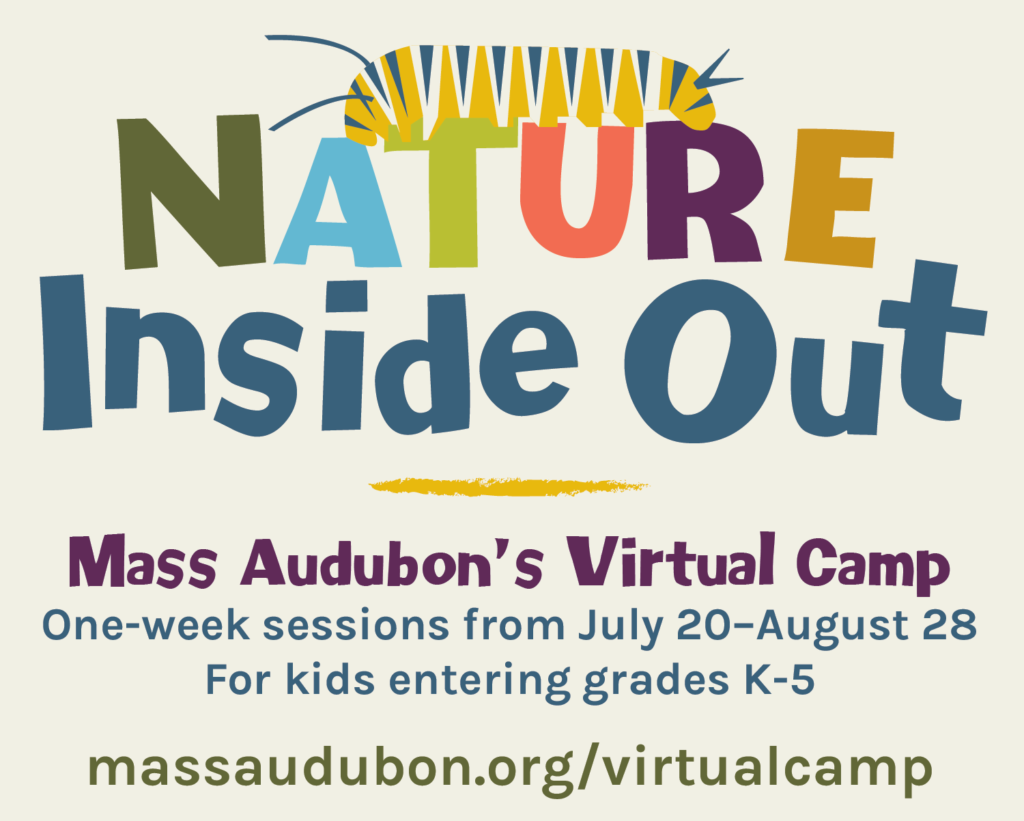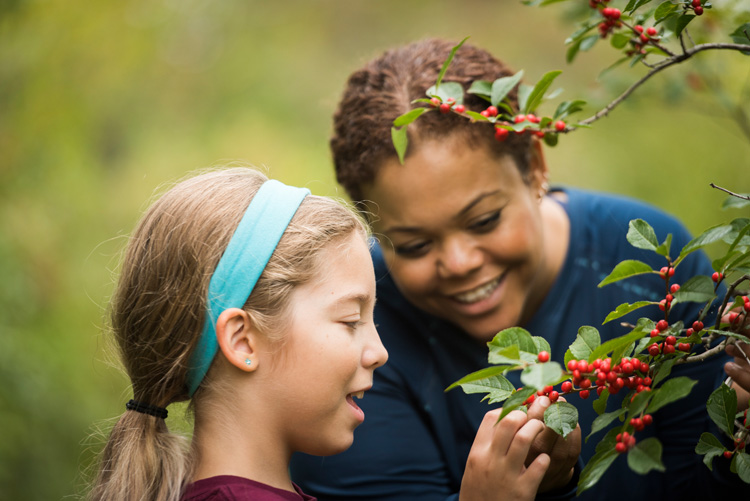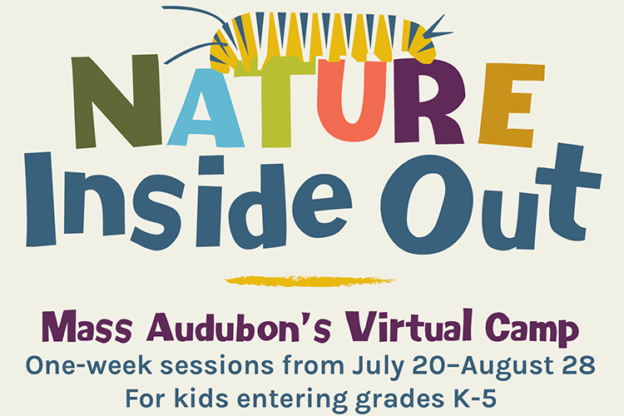
We’re taking the Mass Audubon nature camp experience online!
Join us virtually each week for a unique, engaging, and fun series of week-long nature-education experiences—both inside and out! Each one-week session will include virtual discussion and instruction; daily themed nature quests and activities designed to get you outside and exploring nature in your backyard or neighborhood; a “Wacky Wednesday” dress-up theme; a Thursday evening all-camp program; and more.
We’ll get to know each other through live virtual meetings and explore nature through images, videos, hands-on activities, and explorations at home and in your neighborhood.
What to Expect
Activities will be differentiated for each age group, K–Grade 2 and Grades 3–5. Upon registration, you will receive an email with the schedule for the week and links to our meeting times and videos. Each day, campers will receive a Nature Quest—this might be a game, activity, science experiment, cooking project, or even an art project.
Register Today!

Session Themes
Click one of the sessions below to learn more and register your child today.
July 20–24, 2020
Each day, we’ll investigate a group of organisms and learn about their “superpowers,” like how pillbugs and worms create dirt, how chipmunks can carry piles of food three times larger than their heads, and how salamanders can breathe through their skin! You’ll create an insect scent trail or go on a plant adaptation scavenger hunt, learn about the types of amphibians that can be found in your neighborhood, and make a craft from a recycled paper tube. At the end of the week, unlock your own superpower to help take care of nature.
Session 2: Water, Stones, Fossils, Bones
July 27–31, 2020
What gems of knowledge can we discover by studying dirt and soil? Explore rocks and minerals, bones and fossils, and even volcanoes! Uncover your inner geologist and archaeologist as you grow your own crystals, discover the recipe for soil, and make “glacier gloo,” volcanoes that erupt, and nature fossils. Each day, we’ll investigate concepts that help us learn about the foundations of the Earth.
August 3–7, 2020
What do grass, rabbits, fungus, rocks, humans, and ants have in common? We are all strands in a complex web of life. Become a habitat detective in your own backyard, in the middle of a city, or at a nearby park. The only tools you need are your keen observational skills as you take a close look and learn about the world around you and learn about the roles that both living and non-living things play in keeping nature in balance. Explore the layers of the forest, play meadow Simon Says, create a pond creature, make a web of life, and more!
August 10–14, 2020
Inspired by a Dr. Seuss book each day, we will focus on the message of the story to investigate and learn about nature. Care about the smallest creatures like Horton and wonder what comes down from the sky like Bartholomew. Explore the biodiversity in your backyard, take a micro-hike to see tiny worlds, learn about states of matter, create your own special adaptation, and make some Oobleck. Older campers will take Fernie the Fish on an adventure while younger campers will “make it rain” in an imaginary town.
August 17–21, 2020
Learn all about winged creatures! Birds, bats, butterflies, bees, and so much more—you will learn about how they fly, what they eat, and where they live. Create a new species of bird, learn how bats find their food and what they like to eat, discover what color of flowers to plant to attract butterflies, play a dragonfly life cycle game, and dance like a bee.
August 24–28, 2020
Where would we be without plants and clean air? Spend the week discovering different plants, what they can be used for, and how important they are to keeping our Earth healthy. Learn how trees recycle nutrients and play a recycling game, discover the important job of pollinators in producing the food we eat, and see how composting leftovers can help the garden grow.


